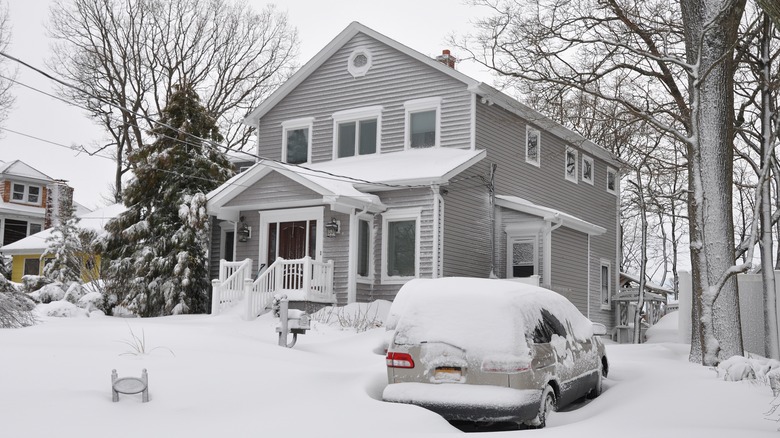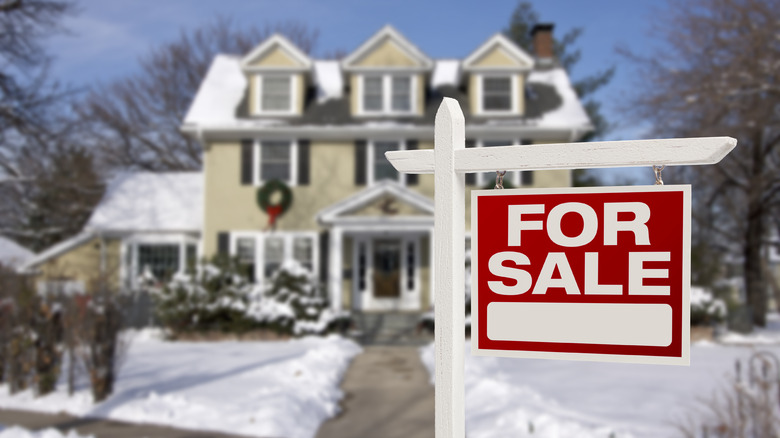When's The Best Time Of Year To Buy A New House?
Mortage rates are at the highest level since the year 2000. That, combined with sticky home prices that are hovering near all-time highs, translates into a challenging environment for many home buyers. Prospective buyers need every edge possible to try to score a deal.
Something aspiring homeowners might want to consider is that certain times of the year can present more and less favorable conditions to shop for their dream property. Indeed, seasonal patterns can affect the amount of available inventory on the market, the number of competing buyers, and even the accessibility of related services like movers and home inspectors.
That said, the relentlessly low inventory of existing homes in a post-Covid world means that purchasing in the slow season might not have the outsized advantage that it once did, but it still merits investigating. In recent comments to Forbes, Rick Sharga, executive vice president of the real estate data company ATTOM, said that "...the old adage 'Spring forward and fall back' applies not only to setting your clocks, but to home prices as well."
As temperatures rise, so do prices
Per ATTOM — which has analyzed more than 51 million single-family transactions since 2011 — May is the worst month for scoring a bargain. The term "spring selling season" exists for a reason and the period between April and June has traditionally supported premium prices for sellers based on several factors.
One of the biggest influences is that buyers with children may try to time their transaction so the physical moving process happens after one school year ends, but before the new school year begins. Also, homes in colder climates tend to look their best outside of the winter months, when natural light is abundant and lawns and landscaping can be shown off to their full lush potential. Not to mention that it's just more pleasant for potential buyers to tour homes as the days grow longer and temperatures get warmer.
Because so many sellers take advantage of listing during the spring, buyers will also encounter the largest inventory of properties for sale. Without a doubt, picky shoppers will find a great selection of properties during the spring and summer months with the caveat that increased competition from other buyers can lead to bidding wars and higher prices.
Activity slows during the holidays
As you may have guessed, the best time of the year to buy a house is winter. Days get shorter, temperatures start to drop, and weather events like snowstorms not only make house shopping a less popular activity, but the properties themselves don't always display their best dollar-inducing curb appeal. Obviously, the dreary effects of winter will be less pronounced in states with mild climates like Florida and Arizona, but there are still some advantages to shopping in November through January, even in the sunbelt.
One caution to wintertime home shopping is that some sellers don't want the inconvenience of marketing their homes over the already busy and sometimes stressful holiday season, which reduces the selection of homes for sale in the winter. That means you may not be able to check every detail off your dream home wish list, but the homes that are listed for sale may have motivated sellers who can't or don't want to wait until conditions improve in the spring or summer, netting flexible buyers a deal.
Besides snagging a better deal, buyers may also be able to close on their new purchases quicker due to the increased availability of real estate agents, lenders, and home inspectors. Finally, if you are buying in a snowy climate, touring a property in winter can expose critical information like drafty windows, icy patches on the driveway or sidewalk, and the effectiveness of the heating system.


